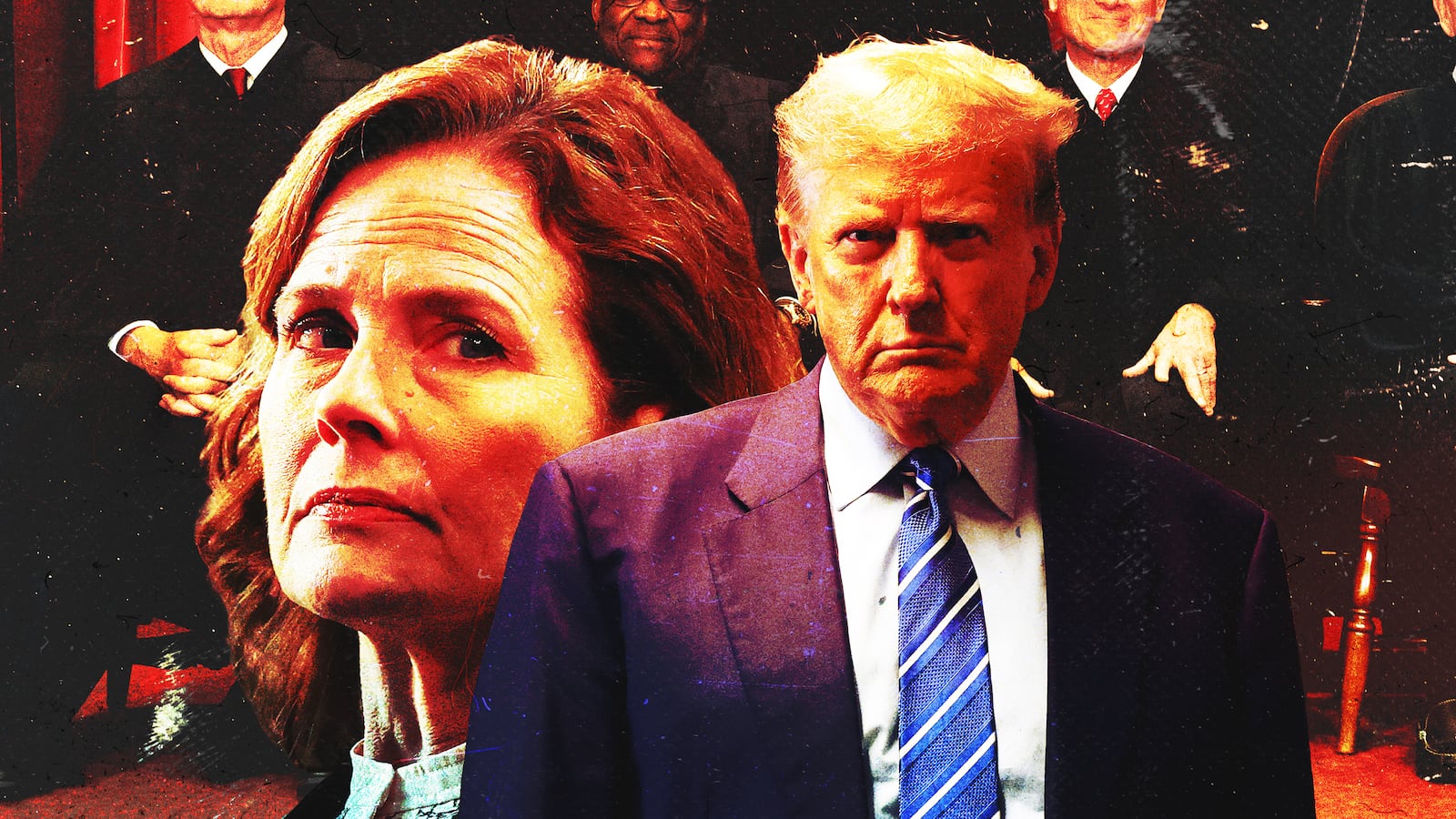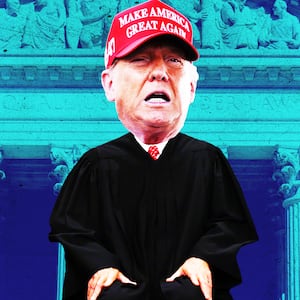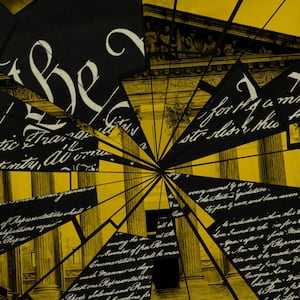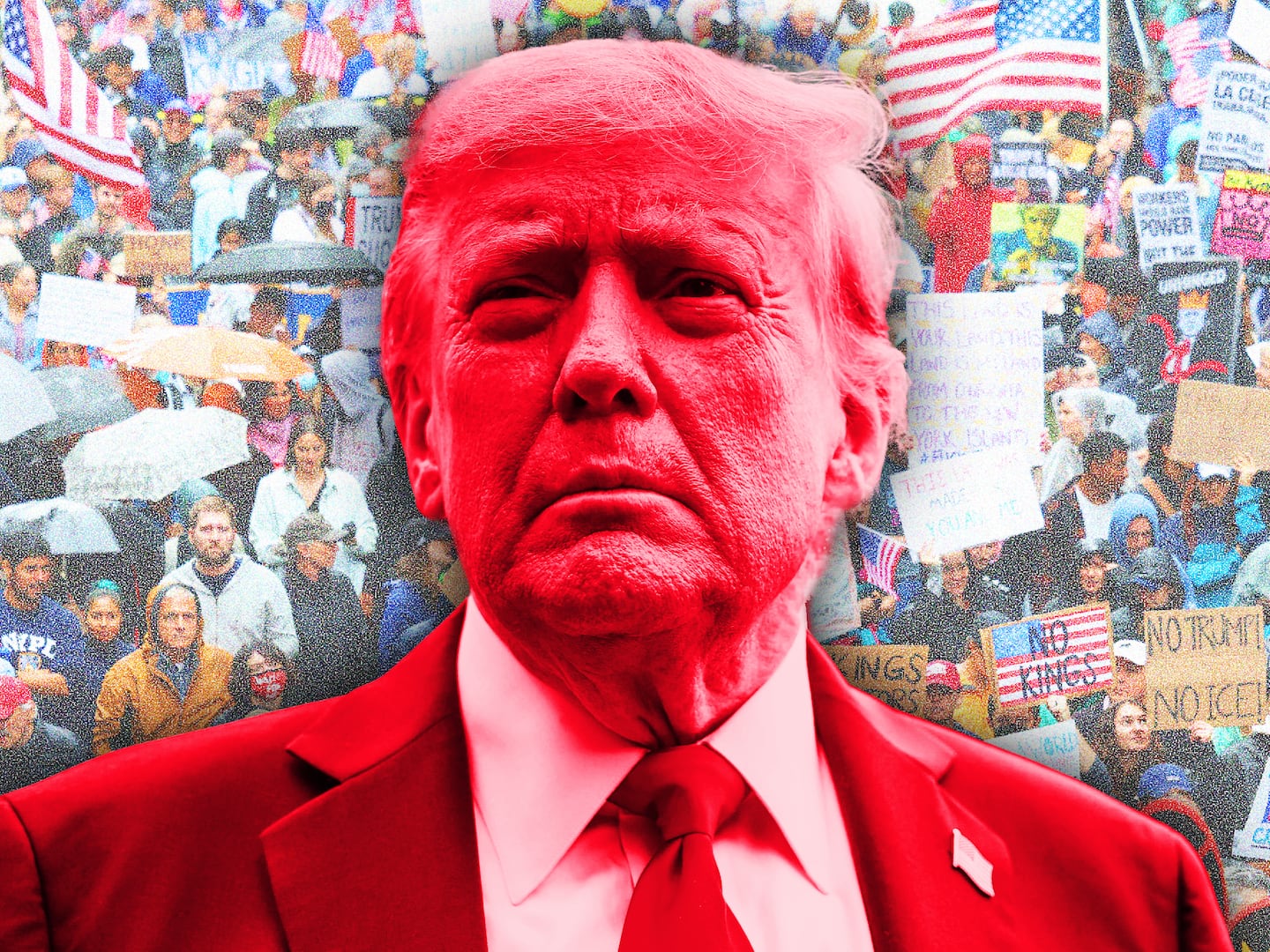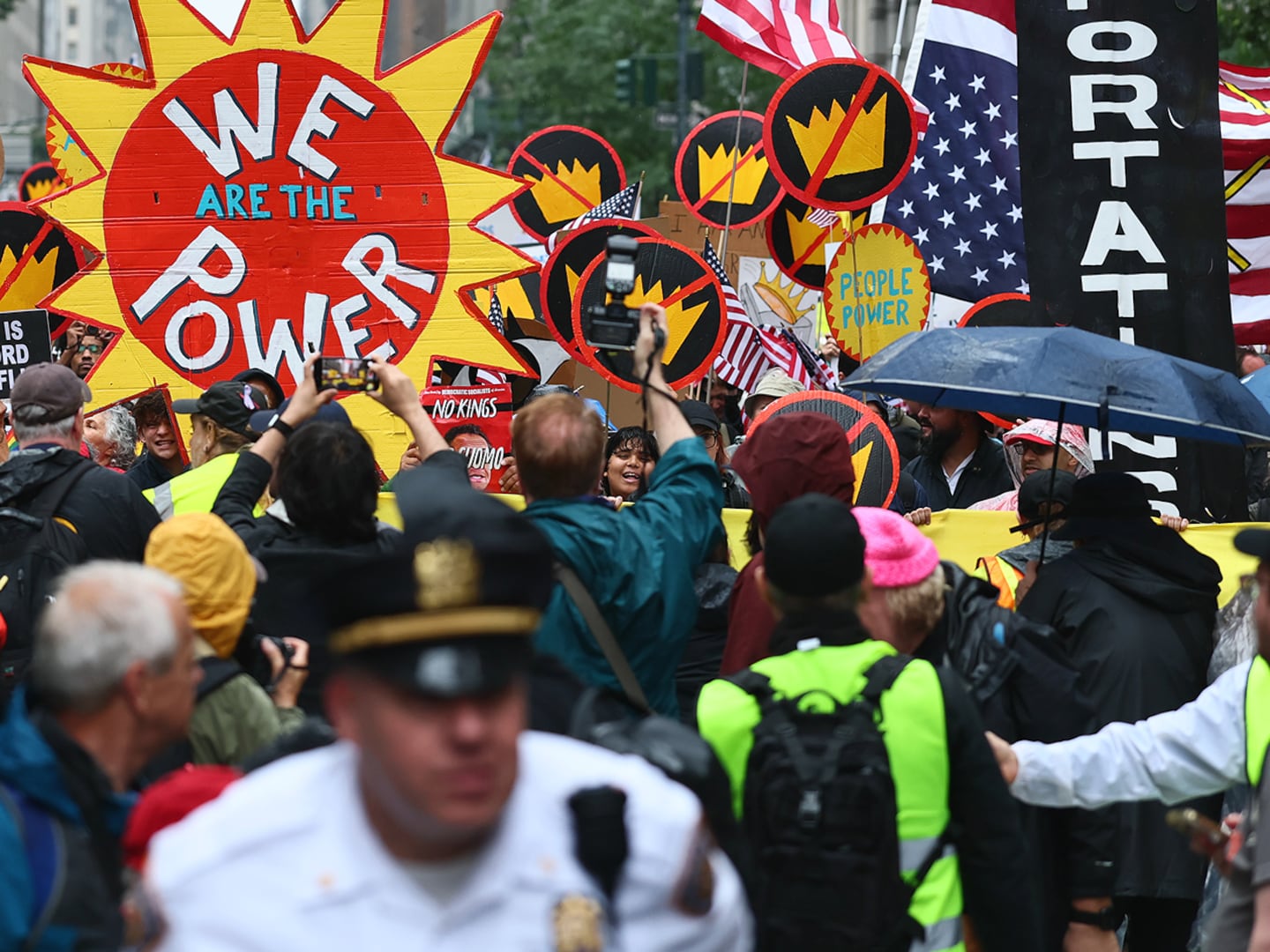President Trump is facing more legal challenges than ever as his administration runs roughshod over law and precedent. As his policy moves are challenged as legal overreach or outright violations of the Constitution, he is, understandably, paying particularly close attention to what happens in the courts, including the decisions rendered by the hundreds of judges he appointed during his first term. And he is not happy with what he sees.
After a three-judge panel of the U.S. Court of International Trade, including one judge he appointed, ruled against him unanimously in a tariff case, he flew into a rage on Truth Social. In a message, he condemned the conservative Federalist Society—long the preeminent right-wing legal group—and labeled one of its former officials, Leonard Leo, “a real ‘sleazebag’… a bad person who, in his own way, probably hates America.” He went on: “I am so disappointed in The Federalist Society because of the bad advice they gave me on numerous Judicial Nominations.”
According to reports, Trump is particularly perturbed by Justice Amy Coney Barrett, whom he appointed to the Supreme Court after the death of Ruth Bader Ginsburg, for siding with the court’s liberals in a couple of cases. Barrett is ideologically very conservative but not a complete partisan, which means she won’t always do whatever a Republican president wants. This is proving to be a particularly bitter discovery for him.
ADVERTISEMENT

That’s the bad news, Mr. “Art of the Deal.” The chips are in and you got played. The Federalist Society wasn’t your servant. You were its tool.
In early 2016, Trump made clear that he was outsourcing the task of selecting judges. “We’re going to have great judges, conservative, all picked by the Federalist Society,” he said that March after a meeting with Leo, then its executive vice president and guiding force. What could go wrong?
But for the Federalist Society, Trump was a vehicle (dare we say a clown car?) to achieving the goal of a transformed judiciary. Its loyalty wasn’t to him, or to Trumpism, but to a vision of the American system remade. In that new system, conservative judges are the prime shapers of policy and power, ensuring that social conservatism and unfettered business interests reign.
The Federalist Society has to be considered one of the most successful political organizations in American history, and much of that success is due to its patience. Founded in 1982 as, ostensibly, a law school debating society with a conservative bent, it quickly became an incubator of ideas and, most critically, a network for ambitious lawyers looking to climb up the ladder and implement a right-wing legal vision. Nearly every prominent Republican legal figure, including all the conservatives on the Supreme Court, has ties to the Society. Membership is a stamp of approval for Republican judges filling clerkships and Republican politicians filling their administrations: They’re on the right team.
Capturing the judiciary and reshaping the law would be the work of decades, spread across multiple presidencies. But all the right’s legal victories of recent years—overturning Roe v. Wade, outlawing affirmative action, making campaign finance law all but meaningless, weakening the ability of labor unions to organize—can be directly traced to the Federalist Society.
All of that sounds—or sounded—fine to Trump, whose first and only consideration is his own interests. He cares deeply about loyalty, but it only runs one way: from everyone else to him. Once you give someone a lifetime appointment, however, they may no longer need to scratch your back. Let’s not kid ourselves: Trump has gotten the vast majority of what he wants from the courts, which during his first term he filled with a collection of partisans and hacks. But there are limits to how far they’ll go; Politico reports that Trump has been incensed that the Supreme Court didn’t overturn the 2020 election for him.

Don’t give them too much credit. The Supreme Court’s most important recent ruling is probably Trump v. United States, in which it said that the president is almost completely immune from prosecution. (Somehow the republic managed to survive almost 250 years without the president being allowed to do all the crimes he wants.)
That may have been what Trump had in mind when at his address to Congress in March, he said to Chief Justice John Roberts, “Thank you again. Won’t forget.” Trump is always keeping score, and his thanks will again turn to anger the next time a ruling doesn’t give him what he wants. But the Federalist Society already has its victory. And if Trump doesn’t like it—this time or any time? He’ll be gone eventually, but the right-wing legal movement will go on.

